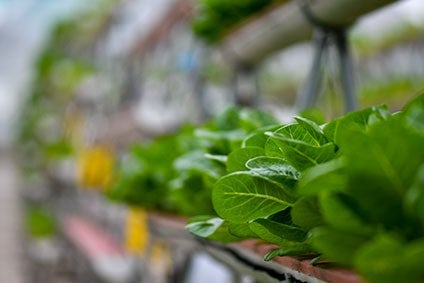
Investment in agri-food tech companies almost doubled to US$22.3bn last year and is expected to accelerate further in 2021, according to a report from Finistere Ventures, which noted a particular interest in indoor-farming technology firms and the rise of SPACs.
The US-headquartered venture-capital investor in agri-food tech said last year’s “record” deals in the space, which rose from $12.5bn in 2019, were dominated by the food sector, which amounted to $17.3bn, compared to $5bn on the agricultural side. Investments in agri-food tech as a whole continued to increase at compound annual growth rate of 50% from 2010 to 2020, according to its annual review.

Discover B2B Marketing That Performs
Combine business intelligence and editorial excellence to reach engaged professionals across 36 leading media platforms.
“We are on the precipice of a decade of vital agri-food tech advancements as investments and profits boom – the roaring 20s just earned a new meaning,” Arama Kukutai, a co-founder and partner of Finistere, said in a statement to accompany the report.
“We expect 2021 to dwarf 2020 numbers as capital continues to flood into the technology categories with absolutely massive disruption potential like indoor ag, supply-chain technologies, animal health, novel ingredients and alternative proteins.
"Valuations, deal totals and market sizes will continue to climb thanks to low interest rates, free-flowing capital and trillions of dollars of pent-up consumer spending power. However, as the market inevitably right sizes and new categories of innovation emerge to meet these monumental shifts, we also expect substantial consolidation and the rise of distinct market leaders."

US Tariffs are shifting - will you react or anticipate?
Don’t let policy changes catch you off guard. Stay proactive with real-time data and expert analysis.
By GlobalDataInvestment into indoor agriculture more than doubled to $1.3bn in 2020, from $601m the previous year, "driven by supply chain and sustainability factors, as well as growing consumer preference for local, fresh produce with superior taste and quality".
Vertical-farming businesses, which grow crops indoors in a controlled environment requiring fewer water resources than regular farming and without the need for soil or pesticides, are starting to turn to special purpose acquisitions companies (SPACs) as a means of raising funds.
Typically, they are seeking mergers with SPACs as a route to an IPO. Infarm in Germany is one such vertical-farming business, which announced a proposed SPAC this month. And AeroFarms in the US is another, with a deal revealed in March.
Finistere expects a "wave" of SPACs from agri-food companies in 2021 seeking a stock-market listing. "With a growing cohort of later-stage companies in the sector, we expect to see both more M&A activity by corporates and traditional IPOs – a major departure from historical patterns in agri-food where exits have been driven mainly by corporate buyouts," the venture capital firm said in the report.
Other notable investment areas included alternative proteins, e-commerce and meal-kit firms.
"With valuations in the stratosphere, even at early stages of company development, alternative protein made a break for the mainstream," Finistere noted, adding deals in the space amounted to $3.1bn versus $859m in 2019.
Investment in meal-kit businesses and delivery start-ups climbed to a "record" $6.2bn from $4.6bn a year earlier, while the food-tech e-commerce segment attracted an unprecedented $5.3bn.
"While 2020 presented some interesting and, at times, surprising outcomes for the agri-food sector, we saw fear turn into fear of missing out, with favourable results for start-ups, particularly those in later stage situations with meaningful revenue and strong growth stories," Finistere co-founder Kukutai said.
"Low interest rates and a soaring equity market have provided a backdrop unseen in the relatively short history of the sector. Investors attracted to the potential disruption of massive total addressable markets fuelled increases in investment across all stages and segments."





